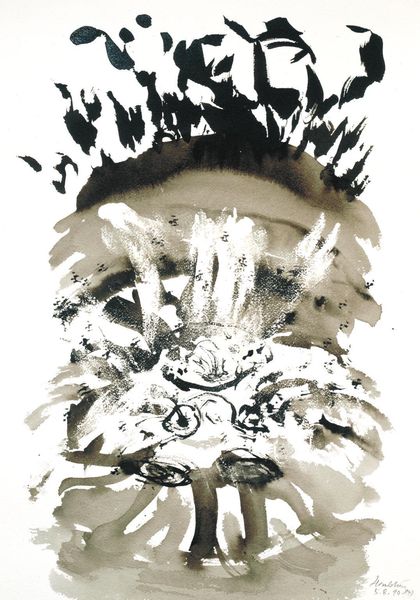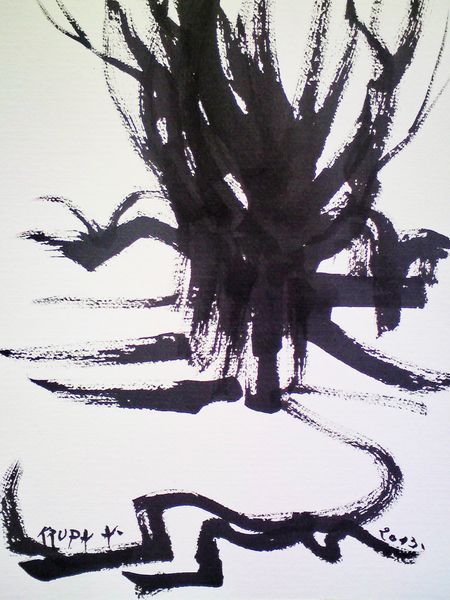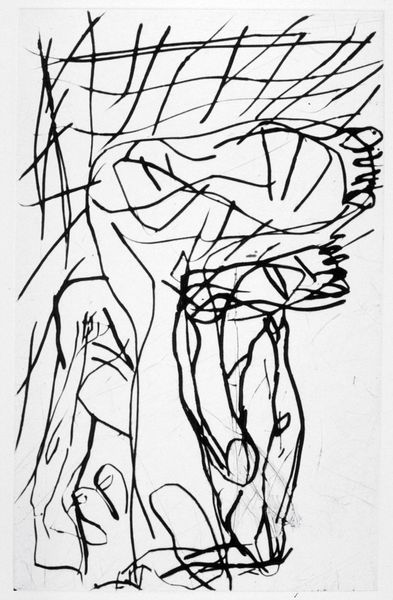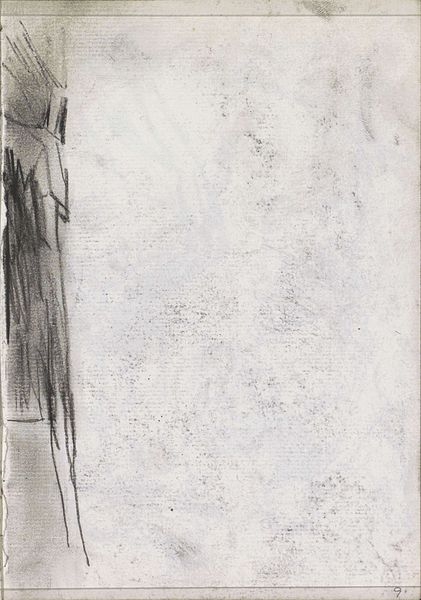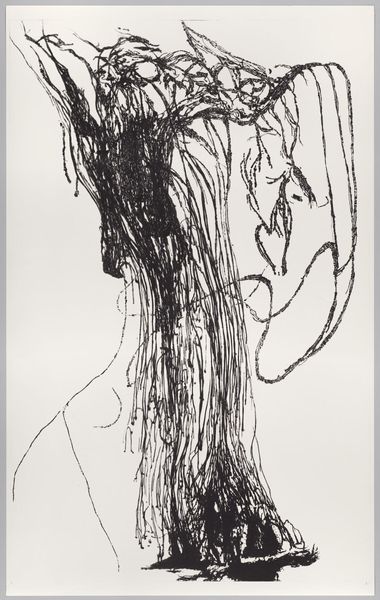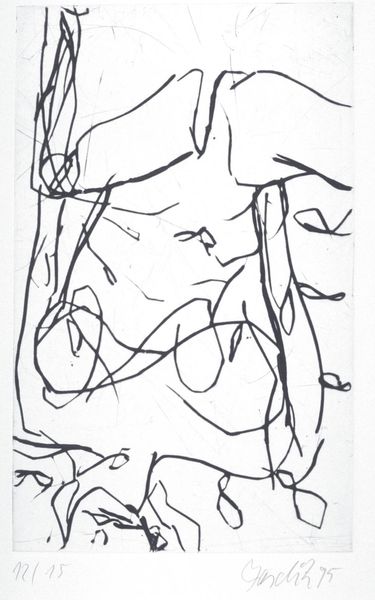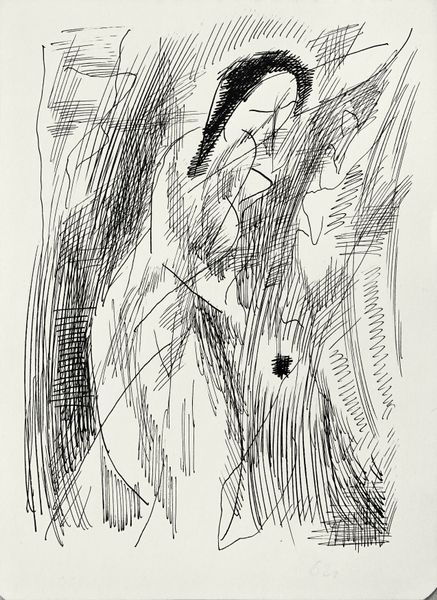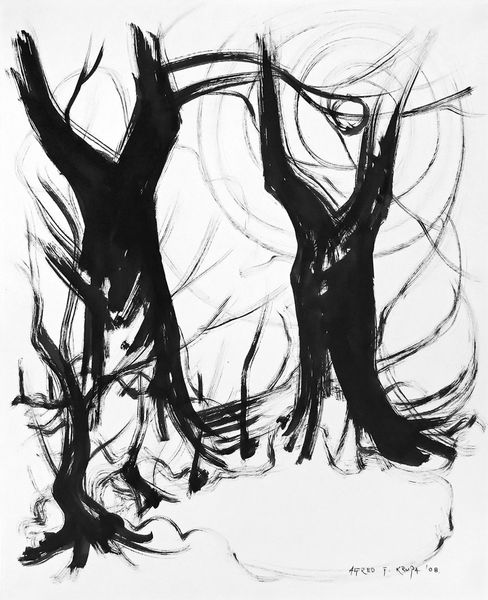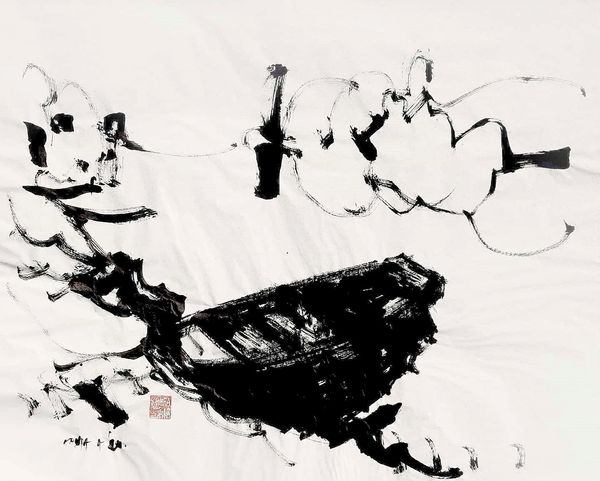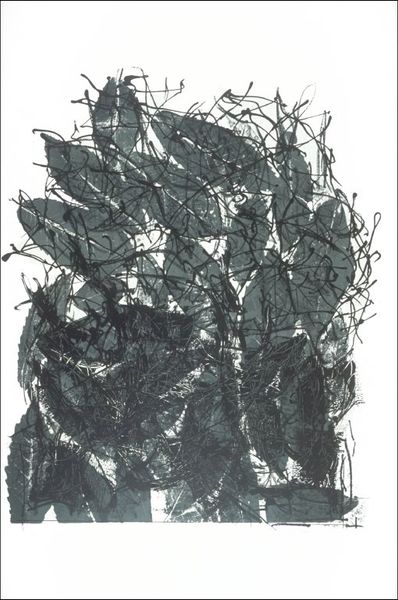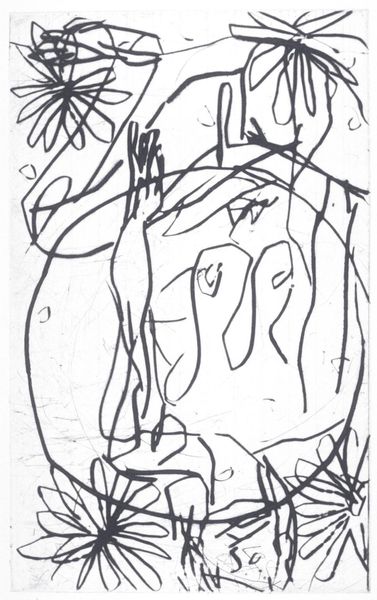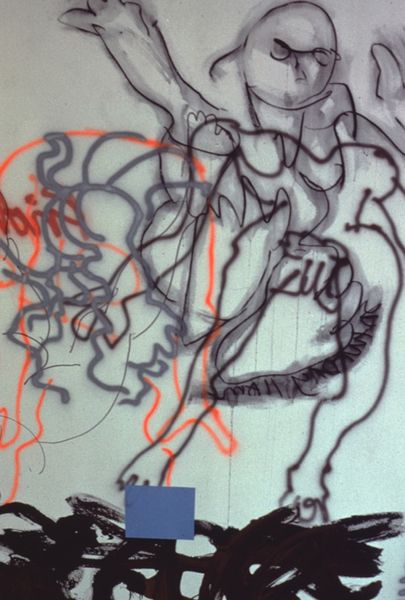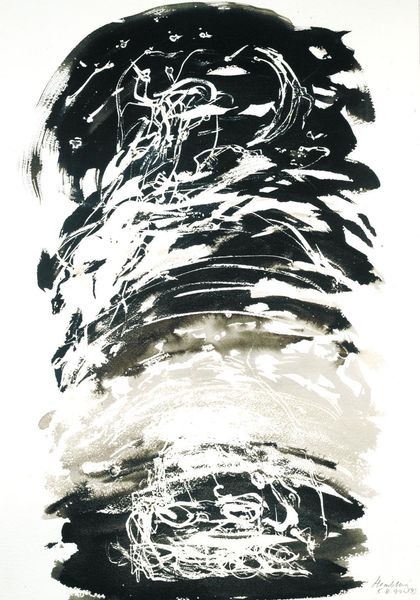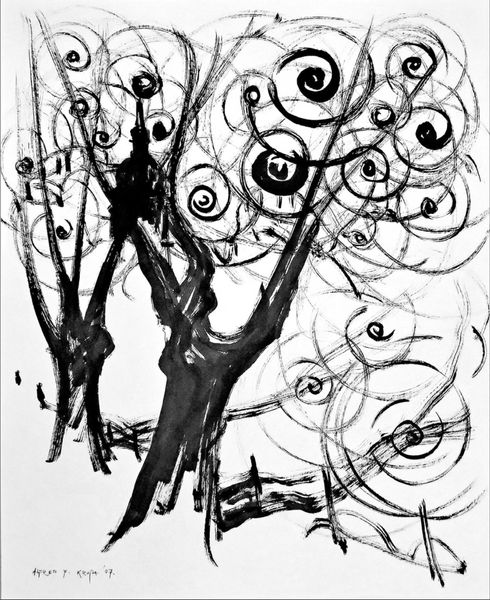
#
thin stroke sketch
#
neat line work
#
hand drawn type
#
ink line art
#
linework heavy
#
organic drawing style
#
ink drawing experimentation
#
hand drawn
#
thin linework
#
doodle art
Dimensions: 100 x 70 cm
Copyright: Creative Commons NonCommercial
Curator: Here we have Alfred Freddy Krupa's "In the Shadows," created in 2008. The artwork primarily utilizes ink on what appears to be paper. Editor: It's immediately striking—the dynamism achieved with such minimal means. A strong contrast between light and heavy strokes that evokes a sense of foreboding, like standing on the edge of a dark forest. Curator: Krupa's work often plays with traditional forms of Japanese and Chinese ink painting. We should consider the role of ink wash painting in the historical context of its socio-political emergence as a scholar art form during the Song Dynasty, and how that dialogs with contemporary artistic expression in a globalized art world. Editor: Exactly. And look at the varying pressure of the brushstrokes, how they swell and diminish, suggesting depth and volume where there is none, really. The formal elements guide our eyes through a constructed space—the strategic use of emptiness balances the areas of dense ink. Curator: And isn’t that “emptiness” a crucial cultural component as well? The appreciation of the void or the unspoken… this approach challenges Western notions of composition that are more invested in filling the entire canvas, stemming back to practices and aesthetic valuing around ritual space. Editor: Perhaps, but on another note, the graphic quality cannot be dismissed; the stark lines have a decidedly modern appeal; an exploration of gesture within limitation. There is also something raw, visceral even, in these decisive marks that speak across cultures about the primal nature of expression. Curator: True. This aesthetic immediacy might make the work particularly accessible to viewers who wouldn’t typically engage with historical discussions on ink painting's cultural and political dimensions, and I would say it can introduce wider audiences to non-Western aesthetics of minimalism, encouraging them to discover deeper nuances, especially the museum audiences who increasingly want to form their own aesthetic responses unhindered. Editor: Ultimately, what moves me most here, apart from any academic association, is the confident expression, the bold execution—the shadow it makes in my imagination! Curator: Precisely, bringing tradition into contemporary social relevance allows historical narratives and contemporary experiences to become uniquely intertwined within the viewing public.
Comments
No comments
Be the first to comment and join the conversation on the ultimate creative platform.
